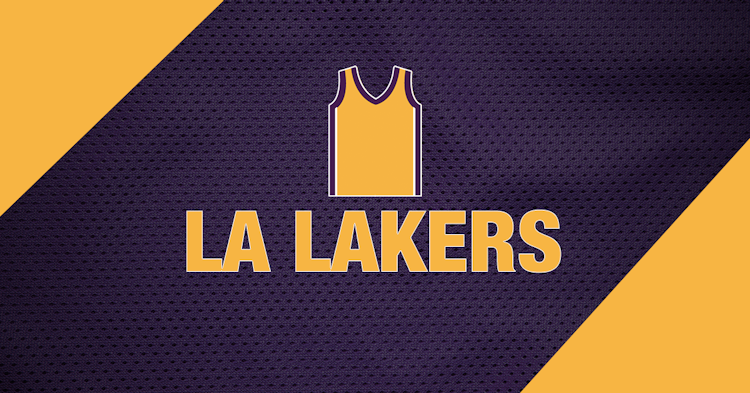What Can Be Learned From The Lakers Championship?
Last updated: Oct 15, 2020, 1:53AM | Published: Oct 14, 2020, 10:41PM
And with that, goodbye to the bubble.
It was a strange, unprecedented two-month stretch of the NBA, with meltdowns, improbable runs, and Danuel House.
Atmosphere was lost without fans but quality and tension was not. The Clippers and Bucks imploded, but that didn't cheapen the bubble. It perhaps just spoke to the bubble's power to wrench out a bit of truth. The toughest teams endured - a final four of the Lakers, Heat, Celtics and Nuggets was odd but earned. All four teams were courageous and resilient, all at various times challenged to a breaking point and then refusing to break.
It took multiple breaking points to finally finish the Heat, Celtics and Nuggets. Bam Adebayo ended Boston, and LeBron James and Anthony Davis ended Denver and Miami, and then they ended the season.
It was fitting in the end that the most extraordinary context for an NBA playoffs concluded with perhaps the greatest player of all-time emerging as the champion. There is no asterisk here - if anything, this championship was extra special, extra earned, and will always be remembered.
RELATED: The Doc's in, but can Philly still trust the process?
Teams experienced plenty of adversity in the bubble, and ultimately the length and force of James and Davis was too much hardship to overcome. The defining image on the court all season was simply how unusually gigantic this Lakers team was. Seeing James, Davis and Dwight Howard in the same front-court was jarring and imposing - it was just too much mean length to reasonably navigate.
Being gigantic was just one look the Lakers had. They could also go small in non-Davis minutes, with Markieff Morris at the five alongside James. And then they could go to their unfair version of 'small', with James and Davis at the four and five, playing with pace, shooting and dexterity while rarely being at a size disadvantage. This was the look in the end that was predictably most fearsome - the two superstars alongside three of Alex Caruso, Kentavious Caldwell-Pope, Danny Green and Rajon Rondo.
None of those players, or Kyle Kuzma, Morris or Howard, should have any business being the third-best player on a title team. But this Lakers team was an amped up version of the James Harden-Houston archetype - role players can be supercharged if their role is extremely defined and achievable.
Average shooters were lifted by the wide-open looks that James creates. Below-average dribblers barely had to dribble at all because James shoulders such a load on offence. Defensively, everything is simpler and more adaptable when Davis is patrolling.
James was brilliant in the Finals - the transcendence just routine and kind of numb now - and the championship is mainly his moment, for his legacy. But on the court, this felt like Davis's moment. Davis's defence steered the Finals towards its conclusion, his spectre breathing on every Miami possession. The Heat players all took their turns at being rattled by the ghost of Davis, passing up open layups for kick-outs, assuming that Davis would always be there to devour and embarrass them.
2020 #NBAFinals MVP: LeBron James 👑
— Stats Insider (@StatsInsider) October 12, 2020
▪️ 4x Finals MVP
▪️ 4x Champion
▪️ Only player in NBA history to record at least 150 pts, 50 rebs, and 50 assists in a single Finals.
▪️ First player in history to win Finals MVP with 3 different teams#LakeShow #NBApic.twitter.com/bjNb4KI7pL
Rudy Gobert and a locked in Joel Embiid have a similar effect at the rim, but Davis's agility makes him more absurd, the pace and sudden, violent, enveloping extension threatening every jump shot.
The Heat scored well until a dreadful Game 6, when the Lakers defence finally overwhelmed them. Even during those first five games, Davis had a 109.9 defensive rating, the Heat scoring at a rate that would have ranked just 18th during the regular season with Davis on the floor. Until that Game 6 - a laugher in which the Heat could barely move - Davis had a 7.2 net rating, eclipsing James’ 3.8.
They were the perfect complements to each other. James carried the offence, with Davis - particularly on the offensive boards, most memorably in Game 2 - providing excellent support, and on defence they reversed roles, with James supporting Davis’s leading role.
RELATED: Inside a disastrous Clipper's meltdown
The Lakers weren't perfect. They were worryingly dependent on Rondo, the only player outside of James who could reliably dribble. Games often swung on average shooters making shots or not. The half-court offence was often a grind, particularly late in games. Despite James and Davis being on the floor, the most devastating late-game offence in the series came from Jimmy Butler operating on a spaced floor - spacing that the Lakers could never quite mimic for LeBron or Davis.
But the defence was always there to lean into, and in Game 6 they leaned in all the way, and Miami finally broke. Rondo blowing by Butler, heroic to that point and now with nothing left, was the exclamation mark on broken.
Having James and Davis on the same team is cruel and not replicable. But the Lakers championship reinforced two key ideas - to win at the highest level you need length, and you need flexibility.
Only @Lakers duos to win the NBA Finals while both averaging 25+ PPG in the postseason:
— NBA History (@NBAHistory) October 12, 2020
LeBron James (27.6 in 2020)
Anthony Davis (27.7 in 2020)
Shaquille O'Neal (36.3 in 2002)
Kobe Bryant (26.8 in 2002) pic.twitter.com/5vAnhvE2pu
On defence, in transition and on the boards, the Lakers made their size and length and athletic power felt. When things weren't coming easily, they could always fall back on being bigger and stronger and faster. Miami's athleticism was felt in the previous round - the length and tenacity of Butler, Andre Iguodala and Jae Crowder at the top of the zone wrecked the Celtics early in the series, then Bam Adebayo's size and power brought them home late - and helped them stay competitive with the Lakers.
The Lakers always had different cards to play. Against Denver, Dwight Howard played 20 minutes per game, pestering Nikola Jokic. He played just 12 minutes per game in the Finals, and virtually not at all in Game 6, as the Lakers went smaller to create more space and speed, like they did against Houston.
Few teams can combine size and adaptability like the Lakers can, but they will have to try, and the decade-long quest to compensate for not having LeBron James will continue for everyone but the champions.
Did you enjoy this article? Join our free mailing list to get the best content delivered straight to your inbox, or join the conversation by leaving a comment below or on the Stats Insider Twitter or Facebook page.



